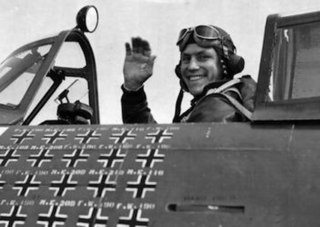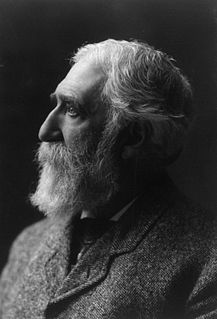A Quote by Mark Twain
From his cradle to his grave a man never does a single thing which has any FIRST AND FOREMOST object but one -- to secure peace of mind, spiritual comfort, for HIMSELF.
Related Quotes
Step back in time; look closely at the child in the very arms of his mother; see the external world reflected for the first time in the yet unclear mirror of his understanding; study the first examples which strike his eyes; listen to the first words which arouse within him the slumbering power of thought; watch the first struggles which he has to undergo; only then will you comprehend the source of his prejudices, the habits, and the passions which are to rule his life. The entire man, so to speak, comes fully formed in the wrappings of his cradle.
It is God's earth out of which man is taken. From it he has his body. His body belongs to his essential being. Man's body is not his prison, his shell his exterior, but man himself. Man does not "have" a body; he does not "have" a soul; rather he "is" body and soul. Man in the beginning is really his body. He is one. He is his body, as Christ is completely his body, as the Church is the body of Christ
The fact that labour is external to the worker, i.e., it does not belong to his intrinsic nature; that in his work, therefore he does not affirm himself but denies himself, does not feel content but unhappy, does not develop freely his physical and mental energy but mortifies his body and his mind. The worker therefore only feels himself outside his work, and in his work feels outside himself.
The man who enters combat encased in solid armor plate, but lacking the essential of selfconfidence, is far more exposed and naked to death than the individual who subjects himself to battle shorn of any protection but his own skill, his own belief in himself and in his wingman. Righteousness is necessary for one's peace of mind, perhaps, but it is a poor substitute for agility . . . and a resolution to meet the enemy under any conditions and against any odds.
Every man is of importance to himself, and, therefore, in his own opinion, to others; and, supposing the world already acquainted with his pleasures and his pains, is perhaps the first to publish injuries or misfortunes which had never been known unless related by himself, and at which those that hear them will only laugh, for no man sympathises with the sorrows of vanity.
The great object of Education should be commensurate with the object of life. It should be a moral one; to teach self-trust: to inspire the youthful man with an interest in himself; with a curiosity touching his own nature; to acquaint him with the resources of his mind, and to teach him that there is all his strength.
Any piece of knowledge which the pupil has himself acquired- any problem which he has himself solved, becomes, by virtue of the conquest, much more thoroughly his than it could else be. The preliminary activity of mind which his success implies, the concentration of thought necessary to it, and the excitement consequent on his triumph, conspire to register the facts in his memory in a way that no mere information heard from a teacher, or read in a schoolbook, can be registered.
The world of men has forgotten the joys of silence, the peace of solitude, which is necessary, to some extent, for the fullness of human living. Man cannot be happy for long unless he is in contact with the springs of spiritual life which are hidden in the depths of his own soul. If man is exiled constantly from his own home, locked out of his spiritual solitude, he ceases to be a true person.




































